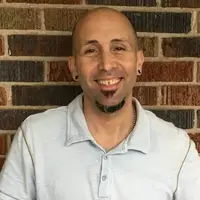2018 National Rx Drug Abuse & Heroin Summit
Date
Location
Atlanta, GA
United States
RTI International had a large presence at the 2018 RX Summit with a space in the exhibit hall and several researchers presenting during the conference.
Laura Dunlap, senior director of RTI’s Behavioral Health Services, Policy, and Economics Research program, was among the speakers discussing how telehealth can help address the opioid epidemic in rural and economically challenged areas. The session was titled “Expanding Access to OUD Treatment: The Role of Telehealth.”
Nick Peiper, a behavioral health scientist, and Jon Zibbell, a senior public health scientist, was among a group of presenters discussing efforts to detect fentanyl and other synthetic opioids in the field. Their session was titled “Drug Checking: A Novel Evidence-Based Strategy for Preventing Overdose.”
Nicholas Richardson, a research public health analyst, and Hope Smiley-McDonald, a research sociologist, presented on innovative actions police are taking to address the opioid crisis. Their session was titled “Law Enforcement and Harm Reduction: Merging Public Safety and Public Health Roles.”
More than 100 attendees stopped by RTI International’s booth to share their ideas about addressing the opioid crisis. The ideas ranged from educating youth about the dangers of opioids to revamping prescribing practices to improving funding for treatment. Although the ideas were diverse, the focus areas mentioned were consistent. More work needs to be focused in the following six areas:
- Prevention
- Treatment
- Recovery support
- Criminal justice system
- Communication and stigma reduction
- Research and data
“I’m incredibly impressed by the breadth and depth of the many ideas shared with us,” said Gary Zarkin, RTI Distinguished Fellow, Behavioral Health and Criminal Justice. “If we can begin making headway on implementing these ideas, we can have a substantial impact on reducing the epidemic.”
Here are some of the attendees’ proposed solutions by each of the six focus areas:
Prevention
- “Drug prevention education in schools, with the ability to teach younger children the effects of drug and alcohol abuse.”
- “Limit opioid prescriptions.”
- “Mandatory use of prescription drug monitoring programs”
- “Promote non-opioid measures to treat pain.”
Treatment
- “Make treatment—detox (in-patient and aftercare), Intensive Outpatient Program—affordable and accessible.”
- “Alternative treatment options”
- “More funding for treatment programs”
- “Medicated Assisted Treatment; Individualized care.”
Recovery Support
- “Don’t stop giving chances to each person.”
- “Get patients’ families involved.”
- “Connect people who have become sufferers of chronic pain with others—i.e., chronic pain support groups.”
Criminal Justice
- “Treatment over arrest”
- “Prosecute small-time dealers at the local level.”
- “Heavy penalty for users who have multiple offenses”
Communication and Stigma Reduction
- “Destigmatize the idea that going through recovery means you’re a bad person.”
- "Each person suffering from opioid use disorder needs medical treatment without stigma.”
- “Learn how to effectively communicate with individuals with substance use disorders.”
- “Bring state leaders together to collaborate and share information.”
Research and Data
- “Use data to determine how and when treatment services are being used compared to disease burden. Leverage information to ensure access to evidence-based treatment.”
- “Use HER data to identify high-risk patients and proactively offer treatment resources.”
- “Find out how people become addicted in the first place.”
- “Study the antecedent causes of injection drug use in 18- to 25-year-old individuals in rural areas to determine when and how they go from snorting to smoking to injection.”
As you can see, there is no single solution to this crisis. But by fusing our ideas and efforts—and working to Fund, Unite, Support, and Educate—we can address the myriad of causes and concerns related to the crisis. By combining your thoughts with RTI's decades of experience addressing issues related to illicit drug use and prescription drug abuse, we can enact the solutions this crisis needs.
To discuss ways to partner with RTI on future projects, contact Gary Zarkin, Distinguished Fellow, Behavioral Health and Criminal Justice.


